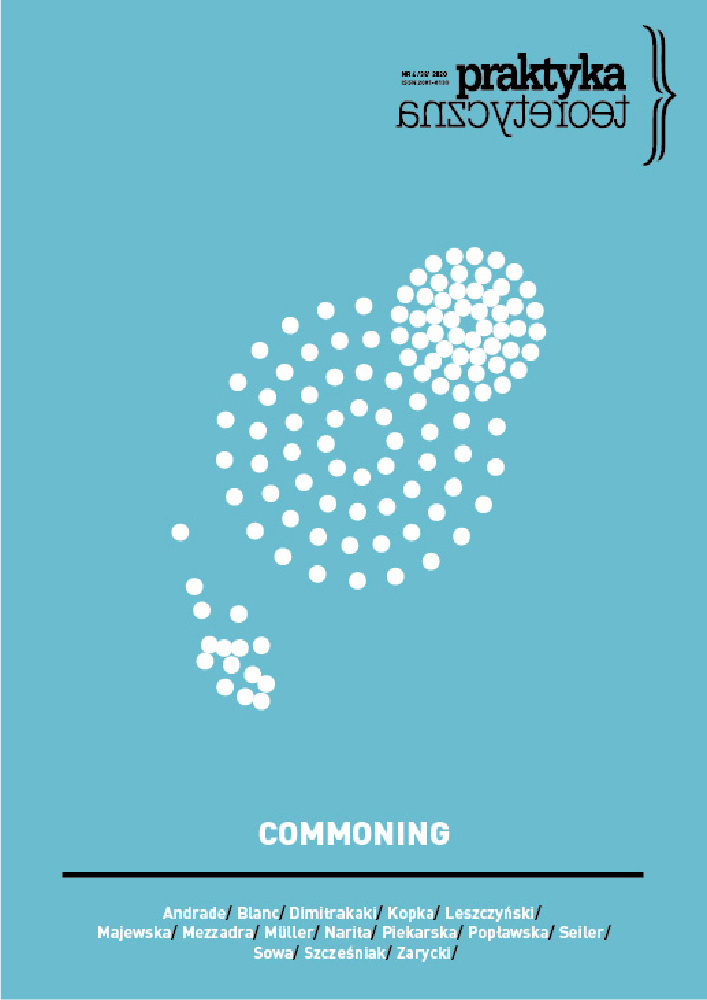Abstract
While agreeing with Martin Müller’s intent of filling the gap in contemporary social sciences that the lack of interest in the Global East constitutes, the article engages in polemics withsolution postulated by Müller. The Author argues for a conceptualization of the Global East that would not be based on its essence, but rather on its place in the global division of labor. The “strategic essentialism” postulated by Müller is refuted for three reasons: a reactionary character of identity politics as such, its capture by the Right and doubtful value of socio-cultural identity of most societies of Global East. Instead an alter-universalism is proposed that would be different from the colonial universalism of the West and focused on constructing a common front of progressive--emancipatory struggles.
References
Geertz, Clifford. 1993. “The Integrative Revolution: Primordial Sentiments and Civil Politics in the New States”. In Clifford Geertz, The Interpretation of Cultures. New York: Fontana Press.
Johnson, Cedric. 2017. “The Panthers Can’t Save Us Now”. Catalyst 1(1). https://catalyst-journal.com/vol1/no1/panthers-cant-save-us-cedric-johnson.
Kiossev, Alexander. 1999. “Notes on Self-Colonising Cultures”. In After the Wall: Art and Culture in post-Communist Europe, ed. Bojana Pejic and David Elliott. Stockholm: Moderna Museet.
Krastev, Ivan and Stephen Holmes. 2020. The Light That Failed: Why the West Is Losing the Fight for Democracy. New York: Pegasus Books.
Scott, James. C. 2009. The Art of Not Being Governed: An Anarchist History of Upland Southeast Asia. New Haven: Yale University Press.
Sowa, Jan. 2011. Fantomowe ciało króla: Peryferyjne zmagania z nowoczesną formą. Kraków: Universitas.
License
“Theoretical Practice” seeks to put into practice the idea of open access to knowledge and broadening the domain of the commons. It serves the development of science, thinking and critical reflection. The journal is published in open-access mode under the CC-BY-NC-SA 4.0 license (detail available here: http://creativecommons.org/licenses/by-nc-sa/4.0/). Articles published in the journal may be freely distributed, stored, printed and utilized for academic and teaching purposes without restrictions.
They should not be, however, used for any commercial purposes or be reconstructed into derivative creations. Access to the journal may not be limited or offered for a fee by any third party.
Prospective authors are obliged to fill in, sign and send back the publishing contract compliant with the CC licencing. [PL.pdf, PL.doc, EN.pdf,EN.doc].
According to this contract, authors grant the journal a non-exclusive right to publish their work under the creative commons license (CC-BY-NC-SA 4.0) without any financial obligation on both sides of the contract.
Before submission authors should make sure that derivative materials they use are not protected by copyright preventing their non-commercial publication. Authors are responsible for any respective copyright violations.
